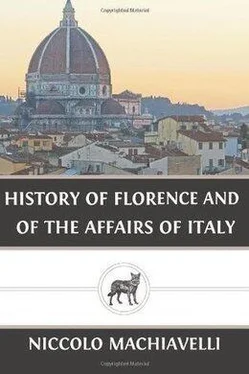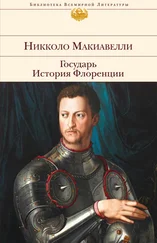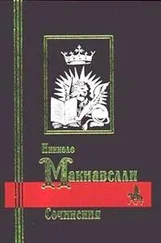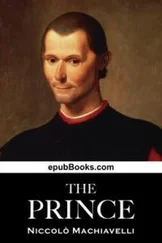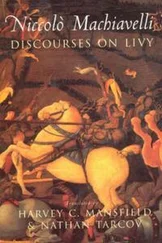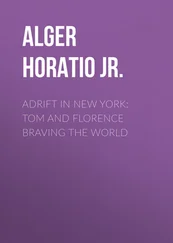Николо Макиавелли - History of Florence and of the Affairs of Italy
Здесь есть возможность читать онлайн «Николо Макиавелли - History of Florence and of the Affairs of Italy» весь текст электронной книги совершенно бесплатно (целиком полную версию без сокращений). В некоторых случаях можно слушать аудио, скачать через торрент в формате fb2 и присутствует краткое содержание. Год выпуска: 2014, Издательство: epubBooks Classics, Жанр: История, на английском языке. Описание произведения, (предисловие) а так же отзывы посетителей доступны на портале библиотеки ЛибКат.
- Название:History of Florence and of the Affairs of Italy
- Автор:
- Издательство:epubBooks Classics
- Жанр:
- Год:2014
- ISBN:нет данных
- Рейтинг книги:3 / 5. Голосов: 1
-
Избранное:Добавить в избранное
- Отзывы:
-
Ваша оценка:
- 60
- 1
- 2
- 3
- 4
- 5
History of Florence and of the Affairs of Italy: краткое содержание, описание и аннотация
Предлагаем к чтению аннотацию, описание, краткое содержание или предисловие (зависит от того, что написал сам автор книги «History of Florence and of the Affairs of Italy»). Если вы не нашли необходимую информацию о книге — напишите в комментариях, мы постараемся отыскать её.
History of Florence and of the Affairs of Italy — читать онлайн бесплатно полную книгу (весь текст) целиком
Ниже представлен текст книги, разбитый по страницам. Система сохранения места последней прочитанной страницы, позволяет с удобством читать онлайн бесплатно книгу «History of Florence and of the Affairs of Italy», без необходимости каждый раз заново искать на чём Вы остановились. Поставьте закладку, и сможете в любой момент перейти на страницу, на которой закончили чтение.
Интервал:
Закладка:
This government, during the eight years it continued, was violent and insupportable; for Cosmo, being now old, and through ill health unable to attend to public affairs as formerly, Florence became a prey to a small number of her own citizens. Luca Pitti, in return for the services he had performed for the republic, as made a knight, and to be no less grateful than those who had conferred the dignity upon him, he ordered that the priors, who had hitherto been called priors of the trades, should also have a name to which they had no kind of claim, and therefore called them priors of liberty. He also ordered, that as it had been customary for the gonfalonier to sit upon the right hand of the rectors, he should in future take his seat in the midst of them. And that the Deity might appear to participate in what had been done, public processions were made and solemn services performed, to thank him for the recovery of the government. The Signory and Cosmo made Luca Pitti rich presents, and all the citizens were emulous in imitation of them; so that the money given amounted to no less a sum than twenty thousand ducats. He thus attained such influence, that not Cosmo but himself now governed the city; and his pride so increased, that he commenced two superb buildings, one in Florence, the other at Ruciano, about a mile distant, both in a style of royal magnificence; that in the city, being larger than any hitherto built by a private person. To complete them, he had recourse to the most extraordinary means; for not only citizens and private individuals made him presents and supplied materials, but the mass of people, of every grade, also contributed. Besides this, any exiles who had committed murders, thefts, or other crimes which made them amenable to the laws, found a safe refuge within their walls, if they were able to contribute toward their decoration or completion. The other citizens, though they did not build like him, were no less violent or rapacious, so that if Florence were not harassed by external wars, she was ruined by the wickedness of her own children. During this period the wars of Naples took place. The pope also commenced hostilities in Romagna against the Malatesti, from whom he wished to take Rimino and Cesena, held by them. In these designs, and his intentions of a crusade against the Turks, was passed the pontificate of Pius II.
Florence continued in disunion and disturbance. The dissensions continued among the party of Cosmo, in 1455, from the causes already related, which by his prudence, as we have also before remarked, he was enabled to tranquilize; but in the year 1464, his illness increased, and he died. Friends and enemies alike grieved for his loss; for his political opponents, perceiving the rapacity of the citizens, even during the life of him who alone restrained them and made their tyranny supportable, were afraid, lest after his decease, nothing but ruin would ensue. Nor had they much hope of his son Piero, who though a very good man, was of infirm health, and new in the government, and they thought he would be compelled to give way; so that, being unrestrained, their rapacity would pass all bounds. On these accounts, the regret was universal. Of all who have left memorials behind them, and who were not of the military profession, Cosmo was the most illustrious and the most renowned. He not only surpassed all his contemporaries in wealth and authority, but also in generosity and prudence; and among the qualities which contributed to make him prince in his own country, was his surpassing all others in magnificence and generosity. His liberality became more obvious after his death, when Piero, his son, wishing to know what he possessed, it appeared there was no citizen of any consequence to whom Cosmo had not lent a large sum of money; and often, when informed of some nobleman being in distress, he relieved him unasked. His magnificence is evident from the number of public edifices he erected; for in Florence are the convents and churches of St. Marco and St. Lorenzo, and the monastery of Santa Verdiana; in the mountains of Fiesole, the church and abbey of St. Girolamo; and in the Mugello, he not only restored, but rebuilt from its foundation, a monastery of the Frati Minori, or Minims. Besides these, in the church of Santa Croce, the Servi, the Agnoli, and in San Miniato, he erected splendid chapels and altars; and besides building the churches and chapels we have mentioned, he provided them with all the ornaments, furniture, and utensils suitable for the performance of divine service. To these sacred edifices are to be added his private dwellings, one in Florence, of extent and elegance adapted to so great a citizen, and four others, situated at Careggi, Fiesole, Craggiulo, and Trebbio, each, for size and grandeur, equal to royal palaces. And, as if it were not sufficient to be distinguished for magnificence of buildings in Italy alone, he erected an hospital at Jerusalem, for the reception of poor and infirm pilgrims. Although his habitations, like all his other works and actions, were quite of a regal character, and he alone was prince in Florence, still everything was so tempered with his prudence, that he never transgressed the decent moderation of civil life; in his conversation, his servants, his traveling, his mode of living, and the relationships he formed, the modest demeanor of the citizen was always evident; for he was aware that a constant exhibition of pomp brings more envy upon its possessor than greater realities borne without ostentation. Thus in selecting consorts for his sons, he did not seek the alliance of princes, but for Giovanni chose Corneglia degli Allesandri, and for Piero, Lucrezia de' Tornabuoni. He gave his granddaughters, the children of Piero, Bianca to Guglielmo de' Pazzi, and Nannina to Bernardo Ruccellai. No one of his time possessed such an intimate knowledge of government and state affairs as himself; and hence amid such a variety of fortune, in a city so given to change, and among a people of such extreme inconstancy, he retained possession of the government thirty–one years; for being endowed with the utmost prudence, he foresaw evils at a distance, and therefore had an opportunity either of averting them, or preventing their injurious results. He thus not only vanquished domestic and civil ambition, but humbled the pride of many princes with so much fidelity and address, that whatever powers were in league with himself and his country, either overcame their adversaries, or remained uninjured by his alliance; and whoever were opposed to him, lost either their time, money, or territory. Of this the Venetians afford a sufficient proof, who, while in league with him against Duke Filippo were always victorious, but apart from him were always conquered; first by Filippo and then by Francesco. When they joined Alfonso against the Florentine republic, Cosmo, by his commercial credit, so drained Naples and Venice of money, that they were glad to obtain peace upon any terms it was thought proper to grant. Whatever difficulties he had to contend with, whether within the city or without, he brought to a happy issue, at once glorious to himself and destructive to his enemies; so that civil discord strengthened his government in Florence, and war increased his power and reputation abroad. He added to the Florentine dominions, the Borgo of St. Sepolcro, Montedoglio, the Casentino and Val di Bagno. His virtue and good fortune overcame all his enemies and exalted his friends. He was born in the year 1389, on the day of the saints Cosmo and Damiano. His earlier years were full of trouble, as his exile, captivity, and personal danger fully testify; and having gone to the council of Constance, with Pope John, in order to save his life, after the ruin of the latter, he was obliged to escape in disguise. But after the age of forty, he enjoyed the greatest felicity; and not only those who assisted him in public business, but his agents who conducted his commercial speculations throughout Europe, participated in his prosperity. Hence many enormous fortunes took their origin in different families of Florence, as in that of the Tornabuoni, the Benci, the Portinari, and the Sassetti. Besides these, all who depended upon his advice and patronage became rich; and, though he was constantly expending money in building churches, and in charitable purposes, he sometimes complained to his friends that he had never been able to lay out so much in the service of God as to find the balance in his own favor, intimating that all he had done or could do, was still unequal to what the Almighty had done for him. He was of middle stature, olive complexion, and venerable aspect; not learned but exceedingly eloquent, endowed with great natural capacity, generous to his friends, kind to the poor, comprehensive in discourse, cautious in advising, and in his speeches and replies, grave and witty. When Rinaldo degli Albizzi, at the beginning of his exile, sent to him to say, "the hen had laid," he replied, "she did ill to lay so far from the nest." Some other of the rebels gave him to understand they were "not dreaming." He said, "he believed it, for he had robbed them of their sleep." When Pope Pius was endeavoring to induce the different governments to join in an expedition against the Turks, he said, "he was an old man, and had undertaken the enterprise of a young one." To the Venetians ambassadors, who came to Florence with those of King Alfonso to complain of the republic, he uncovered his head, and asked them what color it was; they said, "white;" he replied, "it is so; and it will not be long before your senators have heads as white as mine." A few hours before his death, his wife asked him why he kept his eyes shut, and he said, "to get them in the way of it." Some citizens saying to him, after his return from exile, that he injured the city, and that it was offensive to God to drive so many religious persons out of it; he replied that, "it was better to injure the city, than to ruin it; that two yards of rose–colored cloth would make a gentleman, and that it required something more to direct a government than to play with a string of beads." These words gave occasion to his enemies to slander him, as a man who loved himself more than his country, and was more attached to this world than to the next. Many others of his sayings might be adduced, but we shall omit them as unnecessary. Cosmo was a friend and patron of learned men. He brought Argiripolo, a Greek by birth, and one of the most erudite of his time, to Florence, to instruct the youth in Hellenic literature. He entertained Marsilio Ficino, the reviver of the Platonic philosophy, in his own house; and being much attached to him, have him a residence near his palace at Careggi, that he might pursue the study of letters with greater convenience, and himself have an opportunity of enjoying his company. His prudence, his great wealth, the uses to which he applied it, and his splendid style of living, caused him to be beloved and respected in Florence, and obtained for him the highest consideration, not only among the princes and governments of Italy, but throughout all Europe. He thus laid a foundation for his descendants, which enabled them to equal him in virtue, and greatly surpass him in fortune; while the authority they possessed in Florence and throughout Christendom was not obtained without being merited. Toward the close of his life he suffered great affliction; for, of his two sons, Piero and Giovanni, the latter, of whom he entertained the greatest hopes, died; and the former was so sickly as to be unable to attend either to public or private business. On being carried from one apartment to another, after Giovanni's death, he remarked to his attendants, with a sigh, "This is too large a house for so small a family." His great mind also felt distressed at the idea that he had not extended the Florentine dominions by any valuable acquisition; and he regretted it the more, from imagining he had been deceived by Francesco Sforza, who, while count, had promised, that if he became lord of Milan, he would undertake the conquest of Lucca for the Florentines, a design, however, that was never realized; for the count's ideas changed upon his becoming duke; he resolved to enjoy in peace, the power he had acquired by war, and would not again encounter its fatigues and dangers, unless the welfare of his own dominions required it. This was a source of much annoyance to Cosmo, who felt he had incurred great expense and trouble for an ungrateful and perfidious friend. His bodily infirmities prevented him from attending either to public or private affairs, as he had been accustomed, and he consequently witnessed both going to decay; for Florence was ruined by her own citizens, and his fortune by his agents and children. He died, however, at the zenith of his glory and in the enjoyment of the highest renown. The city, and all the Christian princes, condoled with his son Piero for his loss. His funeral was conducted with the utmost pomp and solemnity, the whole city following his corpse to the tomb in the church of St. Lorenzo, on which, by public decree, he was inscribed, "FATHER OF HIS COUNTRY." If, in speaking of Cosmo's actions, I have rather imitated the biographies of princes than general history, it need not occasion wonder; for of so extraordinary an individual I was compelled to speak with unusual praise.
Читать дальшеИнтервал:
Закладка:
Похожие книги на «History of Florence and of the Affairs of Italy»
Представляем Вашему вниманию похожие книги на «History of Florence and of the Affairs of Italy» списком для выбора. Мы отобрали схожую по названию и смыслу литературу в надежде предоставить читателям больше вариантов отыскать новые, интересные, ещё непрочитанные произведения.
Обсуждение, отзывы о книге «History of Florence and of the Affairs of Italy» и просто собственные мнения читателей. Оставьте ваши комментарии, напишите, что Вы думаете о произведении, его смысле или главных героях. Укажите что конкретно понравилось, а что нет, и почему Вы так считаете.
